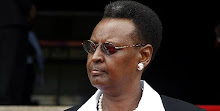Wednesday, May 30, 2012
M7's absurd diatribe against Charles Obbo!
Posted by
ForGodandmyAfrica
at
Wednesday, May 30, 2012
0
comments
![]()
Friday, May 18, 2012
M7's bigotry is killing Uganda's leadership talent potential!
Posted by
ForGodandmyAfrica
at
Friday, May 18, 2012
0
comments
![]()
Thursday, May 17, 2012
A Tribute to The Courage of Activists for Change (A4C)
Posted by
ForGodandmyAfrica
at
Thursday, May 17, 2012
0
comments
![]()
Wednesday, May 16, 2012
Uganda is not Maximizing its leadership Talent Synergy!
Posted by
ForGodandmyAfrica
at
Wednesday, May 16, 2012
0
comments
![]()
Subscribe to:
Posts (Atom)


